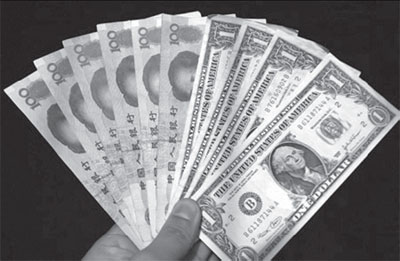Two challenges to conventional economics
P V D Leo Samson
Many challenges have come to conventional economics taught and
practised in Sri Lanka. In fact these conventional economic theories
were not empirically tested in the context of developing economies such
as Sri Lanka. But they have been widely communicated to local people and
then made a pre-condition to development assistance and thereby everyone
has come to accept them as scientifically proven theories valid
universally.
The first relate to the growth of gross domestic product, which
recorded 8 percent growth in Sri Lanka in 2010, up from 3.5 percent in
2009. As per conventional economic thought, this would require an
investment rate of around 35 percent of the gross domestic product, but
it has been around 26 percent during the growth period. The secret is
that due to the end of war, the existing public investments started
giving a return to the national economy. For example newly reconstructed
highway network facilitated a free flow of goods and services across the
country.
|

Yuan and US dollar notes |
Gross domestic product
When public enterprises such as KKS cement factory, Valachchenai
paper factory and fishery harbours already built, engage in full
business activity. Gross domestic product will increase by using the
existing public investments. This need to be contrasted with investments
made in a developed country, where existing resources are used to
provide goods and services to an optimum level.
The second economic theory debunked by Chinese economic growth model
is devaluation of national currency. When currency is devalued, exports
increase and imports decrease and country's trade account improves by
having a favourable balance. This leads to improvement in overall
balance of payments and strengthens the country's overall economic
performance. This was the economic model followed by Sri Lanka since the
economy was opened up in 1978 to encourage export led growth. In fact,
when Sri Lanka lost GSP+ duty concession there was a hue and a cry that
rupee needed a substantial depreciation to protect employment. Sri Lanka
did not depreciate the rupee against the US dollar as per agitation, but
rupee appreciated against US dollar and export volumes increased.
The Chinese have refused to appreciate Yuan, their currency against
the US dollar stating that this is not the time to do so. As per
economic theories, since Yuan is overvalued against the US dollar,
imports should increase and exports should decrease and trade balance
should be adversely affected. But China refused to do so, when
temporarily there were setbacks to their economy and now the Chinese
economy has regained the overall improvement momentum.
Currency fluctuations
The fact of the matter is that currency fluctuations reflecting the
overall trade balance always favours US economy which is a major
consumer of all goods and services. Therefore they profess that national
currencies should reflect their balance of payment position.
These Harvard economic theories are favourable and true if the world
wants to stabilize US economy and keep US dollar as world's lead
currency. But if the national governments wish to look into the welfare
of their citizens, it is upto the national economic planners to
continuously defend the living standards of local people and not US
consumers. |



